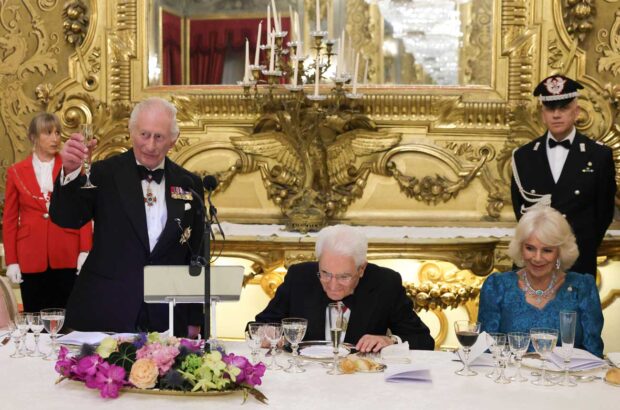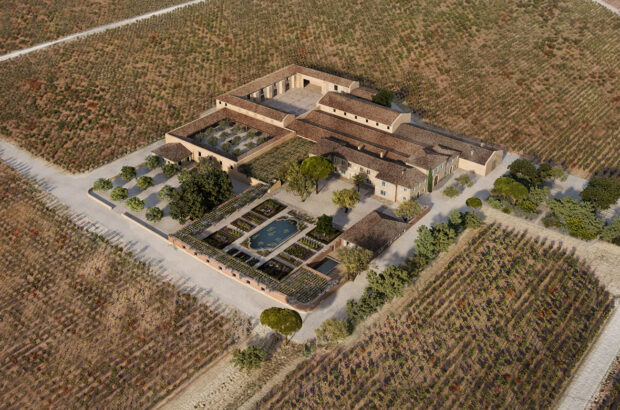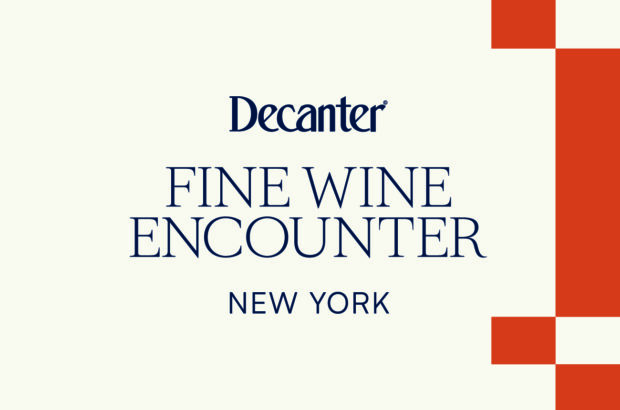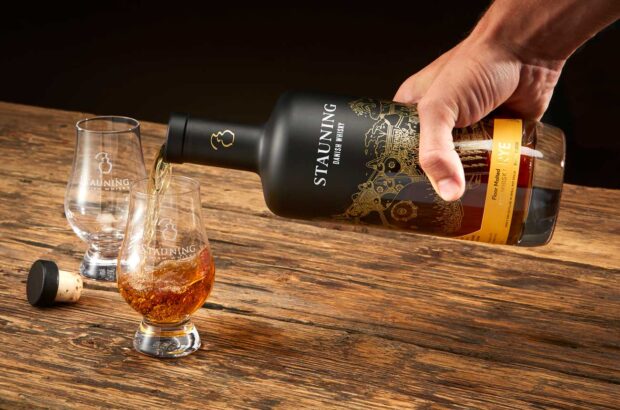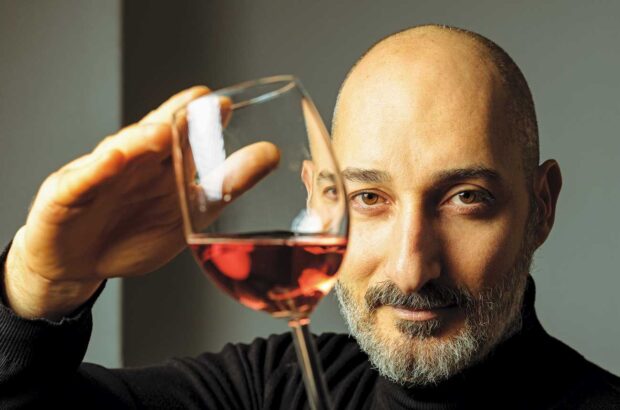France’s most famous actor speaks frankly with GUY WOODWARD about his life and family, and why working the soil, tending vines and producing artisanal food is a greater ambition than any Hollywood role
It’s 8am in Paris and we are sitting in Gérard Depardieu’s restaurant waiting for its owner to arrive. After six months of protracted conversations, various itineraries, changed dates, drunken late-night phone messages (on his part, not mine), procrastinating flirtations (again, his, and with my colleague Christelle Guibert, not me), I still harbour doubts.
Will he show? The original idea was to team Depardieu with fellow French chef Raymond Blanc and let the two loose in Blanc’s Le Manoir aux Quat’ Saisons’ Oxfordshire kitchens.
But in a bid to circumvent the obstacles this threw up (he wanted to kill and cook a rabbit on site, the Manoir’s health and safety officer was less enthusiastic; he wasn’t keen to take Eurostar, as he’d ‘have to talk to people’), we decided to go to him.
As the photographer sizes up one of the private dining rooms for the shoot, a primal, guttural bellowing resonates up the stairs. When we descend to meet the source of the commotion, Depardieu’s presence is even more boorish than his greeting.
He is big without being tall, wide without appearing fat. ‘A large, ursine’ presence was how Observer wine critic Tim Atkin MW described him. ‘A rather attractive truck’, was the verdict of the late author Marguerite Duras. He is immediately welcoming and convivial.
Our coffee is swiftly replaced with wine (his own Anjou white, which he downs in one while we are still assessing its aromatic nuance). His warmth seems genuine, and I relax in the knowledge that we are in for a day full of colourful material.
Yes, we can keep the dictaphone running, yes the photographer is welcome to shoot away at will. Yet, the bonhomie comes couched in a nonprescribed, non-committal way. When I ask how long we have, he waves his hands in a grand, imprecise gesture and harrumphs a vague dismissal.
Depardieu doesn’t like to be tied to schedules or commitments. While he is there, we will be richly entertained. But I also get the feeling he could leave at any moment. Contradiction lies at the heart of Depardieu.
His restaurant, Le Fontaine Gaillon, 500 metres from the Paris Opéra, is all chic: bottles of Coche-Dury andPétrus setting off the refined livery. Yetrather than sharing small talk with guests, Depardieu is happier in the comparativelymodest kitchen, sharing gutter humour
with the kitchenhands.
Or talking toanimals. ‘Before killing something, Ialways talk to it,’ he says. ‘An animal that’sbeen caressed before it’s killed diespeacefully and its muscles don’t contract with adrenaline. If an animal is slaughtered in a stress-free way, it tastes better.’
Depardieu says we must all learn to nurture nature. In the kitchens, he immerses himself in the produce, touching and sniffing everything. ‘It’s important to touch everything we eat, even animals.’ He is clutching a slimy turbot to his ample chest. ‘I love fishing. When I was a child, I had to get the blood from the abattoir to make the bait to go fishing.’
Depardieu is a committed omnivore. Yet in his childhood, his family could only afford to
eat meat one week a month. The young Gérard was sent to the butcher, and often returned empty-handed, save for a message: ‘Tell your father to come and pay me.’
He is proud of his humble roots, defending the poor man’s practice of eating liver, tripe, brawn and riz de veau (sweetbreads), by detailing how, in the Middle Ages, the nobles only ate the entrails and threw the meat to the poor.
‘People today say “oh tripe, how disgusting”, but in fact it’s very noble.’ He talks of how the French started eating potatoes after the revolution when Napoleon’s Inspector-General of Health, the agronomist Antoine Parmentier, planted fields of them in Paris to counter famine. ‘They were guarded by the army.
So when they saw the fields, the people fought to grow potatoes because they thought the army was guarding them for the ruling class.’ Depardieu celebrates the potato as ‘the truffle of the poor’ and says ‘it is still the most important vegetable’.
Food preparation was an imprecise science in the Depardieu household. ‘I used to like it when my father cooked – when he made veal or cow lungs. He had to inflate the chest to evacuate all the impurities, then put it in water to clean it.
Then you press it and cut it up. Then you heat it up with a little flour and wine and some onions and lard. It’s called le mou – it’s what you give to cats. I loved it. It had a different taste. ‘But it wasn’t just that.
I was always interested in how to eat.’ So is he a good cook? ‘I don’t care if I’m a good cook or not a good cook. I love produce. I love meat, I love fish, I love life. I try to give pleasure. To give pleasure, you must understand the other.’
He is evasive discussing his family, his background, or money. But when food is involved, he is off and running before you – or he – can catch breath. There is no doubting Depardieu’s passion for food, and not just because of his generous dimensions. But it is the raw produce that really enthuses him, rather than the intricacies of cooking.
He speaks of his delight at ‘walking shoeless through a ploughed field after rain’, of experiencing ‘that unique sensation of wet earth squeezing through my toes and the raw smell of the soil in my nostrils’.
He is more comfortable in the field than on a Hollywood film set. ‘I’d rather work with winemakers than film directors,’ he says. ‘They don’t talk as much.’ ‘Ingredients are very important, but so are the people who raise the animals.
Who bake the bread and make the cheese, who cultivate the fruit and tend the vines. They have an inordinate pride in their profession. It’s always been important for me to understand and to get to know this human element.
‘TV chefs, like Jamie Oliver, are all about marketing. It’s very good but nobody can teach the taste of life. It’s not money that gives you taste – it’s in your head. When you have money, you can buy anything you want. But it’s not what you buy that’s important, its your palate.
‘These chefs with all their stars, they bore me terribly. It’s marketing. It’s very good, but it’s too heavy for me. I loved English cuisine when I visited 30 years ago because it was a poor person’s cuisine. French cuisine is only refined by the presentation of a dish, by its treatment.’
These days. Depardieu has become an Italiaphile. ‘I love Italian culture,’ he says.
‘It’s contrary to France, where people are leaving the soil and coming into the towns. There are too many supermarkets, too many shopping centres here.
In Italy they still have the same respect of values. They still have the same love, the same respect of the mother, the grandmother, the family, the earth, the produce, the region where all the generations were born.’
He is a devotee of the Slow Food movement – ‘that’s exactly the direction I want to take. You don’t need money to be a great chef. Everything is here.’ Italian wine also strikes a chord. ‘The Italians are very strong. They have respect. They would never abandon, for example, Etna in Sicily.
If the Italians were like the French, there would only be Tuscany. Like in France, Bordeaux. But no, there’s Barolo, there’s Sicily, there’s Nero d’Avola, all those things, all that diversity.’
In the final paragraph of the introduction to his cookbook, Depardieu writes of his one unrealised ambition. ‘I dream of working with different soils, of rediscovering the old traditions of wine growing, to tend the vines and work like a true artisan, in harmony with Nature.’
He does own his own vineyards, as well as countless joint ventures with wine moguls Bernard Magrez and Michel Rolland (see box, p45). So, would he like to tend a biodynamic vineyard? ‘No, biodynamics doesn’t exist. They’ve got to stop. It’s a sect.
You can work the soil, you can remove weedkillers, but you’ll always be obliged to treat your vineyard. In Bordeaux they treat their wines to death, because they’ve got the means. Treatment costs a lot of money. I only use biodynamics in Anjou because I’m poor.’
Yet when I ask what his ambition is with wine now, the answer is typically contrary: ‘To intervene the least. To succeed with a reasonable yield. To resort to chemicals the least possible.
What I don’t like is to publish a ban des vendages on a certain date [before which one is not allowed to harvest], I find that stupid. When you taste and you say “that’s ready” I don’t know why I need to keep it ripening.
Sometimes I find wines that are a little overripe. I like wines to be a bit nervy, that aren’t too aggressive. I like acidity, even a bit of volatility.’ At Château de Tigné, his 100ha (hectare) property in Anjou, Depardieu can make his own decisions (‘In Anjou, I can’t afford Michel Rolland’) and clearly enjoys it.
‘What I want is to be more free with the vines. I no longer want to belong to things, I want to watch others, but without being obliged to do things – simply to be with people, to share opinions, to reassure people to take a direction, to take a risk. I think what is beautiful is to find people who make you want to share a passion. That’s magnificent. The thing that’s difficult is the infrastructure and the logistics. Making wine is all very well, but I’m not going to busy myself with logistics – I don’t know that.’
Since 2001, Depardieu has puts his name to 13 different wines with Magrez, mostly in conjunction with Rolland. He has little hands-on involvement in their evolution, and most boast the ripe fruit he claims not to favour, and lack the nervy acidity which he professes to admire.
To Decanter’s palate (see p45), one of the most impressive wines is the Tigné red, from the property he has owned and managed since 1989. More’s the pity, then, that’s he’s on the verge of selling up.
‘I’ll almost certainly sell it to pay for my divorce,’ he says. ‘But it’s no big deal; Ownership isn’t fascinating.’ His cookbook was published five years ago, and that ambition he writes about remains largely unrealised.
Yet he derives obvious pleasure from his partnership with Magrez: ‘It’s an adventure. Bernard is an exceptional man for wine and respecting things. If I’m with Bernard, it is because he brings me something human and I give him something human.
It’s a personal pleasure. I don’t make any money making wine. We never talk about money. I don’t ask him, I give him. Or if he asks me, I say “OK, go do it”, and we buy something. I think I gave him €500,000 in 2000 and I have never asked anything since.
For me, it’s a good way to see how they work. When you are only on one or two hectares the people from the country don’t look at you as if you’re a stranger. You become part of the family.’
Until he began working with Magrez, Depardieu had never put his name on his bottles. When the two began working together, Magrez told France’s most famous actor that ‘you must put your name on the label’. So is his fame being used? ‘No.
There are many wines at the same price that are bullshit industrial wines. This is completely honest wine. Its not a question of marketing. I changed the bottle
because Anjou bottles are stupid.
I have made wine for 30 years – I never put my name on it. But since I’ve known Bernard… ‘You can’t escape what people want now. You can go to China, with millions of people – who are the first brands there? Dior, Prada, whatever. We are in a brand-driven world.
I tell Michel and Bernard: “I’m OK with this work, but couldn’t we be a bit more human?” They say “But people want that”.’ Magrez is renowned in the wine industry as fiercely ambitious (he has professed his intent to buy a first growth).
His wines are all labelled as Vignobles de Bernard Magrez, he wears monogrammed shirts, and 50m from Depardieu’s restaurant he has a wine shop that sells nothing but Magrez wines.
Nearly all his wines are made in conjunction with the bête noir of the anti-globalisation lobby, über-consultant Rolland. It appears the kind of marketing-driven empirebuilding that Depardieu so dislikes, but the pair have struck up a strong rapport.
‘Magrez is not like he looks,’ says Depardieu. ‘He’s very fragile, like me.’ In 2005, Depardieu announced his intention to retire from acting to devote himself to wine, food and nature. He has not quite managed it, being forced to accept the odd piece of work to pay the bills.
But he remains intent on cultivating his passion: ‘Wine has a soul. It’s about friendship and sharing simple pleasures. I can be happy on this earth with very little, but I like to have a lot in my glass. I don’t drink to get drunk or to forget.
I love wine because it puts me in good humour.’ The issue of alcohol is writ large in Depardieu’s life. His father, an illiterate sheet-metal worker, was an alcoholic, and Depardieu’s teenage years saw him fall into a delinquent life of crime, selling stolen booze. ‘I was a hooligan,’ he admits.
His son, Guillaume, repeated the pattern and took it to the next level, serving time for drugs offences. Both have also been prosecuted for drinkdriving, and Depardieu senior is on record as saying he can easily consume upwards of five bottles of wine a day (though he says he is drinking ‘much less’ now.
He had a quintuple heart bypass in 2000, but claims this ‘changed nothing’ and he refuses to worry about the amount he eats, drinks and smokes). The two had a public falling out in 2006, Guillaume accusing his father of being ‘obsessed by the need for love and money’, Gérard claiming he no longer wanted to be treated ‘like a trash can’ for his son’s problems.
The two became estranged. When I ask if he will spend Christmas with his family, he claims to have no idea what he will do. ‘What family? I’ve no real family. My family are the people I see every day, like all the people here, in the restaurant.’
So you don’t want be with your family at Christmas? ‘No, generally we row. I think it’s the same everywhere – it’s a nightmare. My family was never really at the table, we each ate in our own corner. At Christmas we ate together, yes.
There was the famous turkey. I nipped into the kitchen to eat the leftovers – I loved it. My mum’s sister’s husband cooked the Christmas dinner – he loved to cook, but it was the type of cooking that imitated chefs.
He did it to please himself, not others.’ And did the Depardieus drink wine at home? ‘No. When you’re young and sad and poor, you drink alcohol, not wine. Stupid drinks. Vodka is a stupid drink because it is just alcohol. Gin, even, is a stupid drink.
Whisky is not a stupid beverage, nor is Cognac. But all alcohol made from grain or potatoes is made for poor people, to destroy their brain.’
Three days after this interview, Guillaume Depardieu was submitted to a Paris hospital and died of pneumonia, aged 37. Father and son were reconciled – to an extent. ‘We speak sometimes,’ Depardieu had said.
‘Because he is difficult – but I’m difficult too, maybe. But it was never very terrible. He was more or less always there. He’s a good boy.’ On December 27, Depardieu will celebrate his 60th birthday. Does he have anything planned?
‘Nothing. I’ve never celebrated my birthday. We never did when I was a child. There was Christmas and after there was New Year. In between, people were still drunk.’ Maybe his son was right – his ex-wife has said it too – that Depardieu ‘needs to be loved’.
There is sadness in his life, but he exudes huge joy. When we follow him, on his scooter, to his favourite butcher to pick up the day’s delivery, he stops to chat with all and sundry, dispensing observations, witticisms, insults and warmth.
It is then that I am reminded what a star he is. Businessmen on their blackberries are agog; a mother and daughter are seduced by his presence; two teenage girls coyly make their way across the street on the pretence of scanning the butcher’s window.
Which brings to mind a quote from Depardieu’s cookbook: ‘My eye will roam with equal pleasure over the face of a beautiful woman as it will over the cuts of meat in a butcher’s window.’ So, I ask him, when he was 15, what did he want to do? ‘Give others food. I was curious, I wanted to see the world, travel, do good things. But I never had any ambitions. Just freedom.’
SO WHAT’S THE VERDICT ON HIS WINES? by Christelle Guibert
Depardieu’s wine empire started in 1979 with a vineyard in Nuits-St-Georges followed by one in Condrieu in 1983 (now owned by Guigal) and then the 13th-century Château de Tigné in Anjou in 1989. Depardieu has expanded Tigné and it now produces 12 cuvées – 350,000 bottles.
The vineyard is in the hands of cellar master Philippe Polleau who has worked with Depardieu for 20 years. ‘Depending on his schedule, he can be here every weekend and then we go seven months without seeing him, but we talk regulary on the phone,’ he says. Depardieu never misses a harvest, and if he is filming during the blending period, Polleau sends him samples.
Thanks to Depardieu’s investment in vineyard and cellar, wine quality has vastly improved. Since 2001, Depardieu has been jointowner, with Bernard Magrez of La Clé du Terroir, which owns tiny estates in regions such as Argentina, Bordeaux, Italy, Algeria and Morocco, planted with local grapes.
They have released 13 wines under the Gérard Depardieu label. Jean-Marc Raynal, techical director for the Spanish and Languedoc-Roussillon vineyards, says: ‘Depardieu is a very good taster, he always gives his honest opinion. Recently he asked if we could reduce the oak ageing to get wines with more fruit.’
And the wines?
They are forward, powerful and modern with intense oak. Despite saying he doesn’t like this style, Depardieu is happy with the results, though would like to see more ‘human character’ in them. ‘People want big wines – I know the fashion – but I’m tired of modern wines; my taste is more towards rounder, lighter wines.’
In 2005 he started a new venture – L’Esprit de la Fontaine – in the Languedoc-Roussillon with Laurent Vidal, winemaker of Mas Conscience; Laurent Odiot, chef of his La Fontaine Gaillon restaurant; Philippe Salasc of Château Grès St-Paul and good friend Jean-Philippe Servière.
Vidal and Salasc are in charge of viticulture/vinification but Depardieu and Odiot regularly taste and give their views on what are the house wines of their restaurant. I’ve tasted a number of Depardieu’s wines, and here are my pick of the best:
Château de Tigné, Le Maillones, Chenin
Blanc, Anjou Blanc, France 2007 ★★★★
Lots of minerality and herbal notes. Good weight and creamy oak. Complex with a ripe finish. N/A UK; +33 2 41 59 68 59
Château de Tigné, Les Terres Chaudes,
Anjou Rouge, France 2003 ★★★★
100% Cabernet Franc. Red fruits and green pepprts. Well-integrated, round tannins. N/A UK; +33 2 41 59 68 59
Gérard Depardieu en Roussillon,
Côtes du Roussillon, France 2005 ★★★★
A concentrated blend of Syrah, Grenache and Carignan. Rich cherry and intense toasty new oak N/A UK; +33 5 57 26 70 80
Passito di Pantelleria, Cuvée Gérard
Depardieu, Sicily, Italy 2004 ★★★★
Dried apricot, marmalade and almond. Elegant structure, high acidity, lovely
richness. N/A UK; +33 5 57 26 70 80
Written by Guy Woodward


